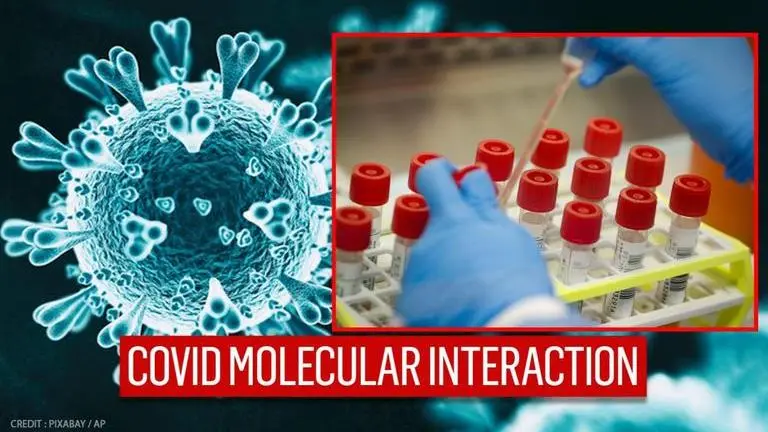Updated 27 December 2020 at 16:03 IST
Coronavirus's interaction with proteins in human cells decoded by Scientists
The study will help improve the understanding of the immune response triggered in the host body and how the viral RNA functions.
- Science News
- 2 min read

Scientists have decoded how the COVID-19 virus interacts with proteins in human cells during infection. The study will help improve the understanding of the immune response triggered in the host body and how the viral RNA functions. Researchers have identified up to 104 human proteins that directly and specifically bind to the COVID-19 virus. Researchers used RNA antisense purification and mass spectrometry, an analytical technique, to identify these proteins.
How will the study help?
Researchers discovered that cellular nucleic acid-binding protein (CNBP) and La-related protein 1 (LARP1), two "strongly enriched viral RNA binders", restrict the COVID-19 virus from replicating in infected cells. It also helped researchers provide a map of the exact location of the virus inside the host cells. The study may help develop new treatments against the COVID-19 disease.
Advertisement
"A detailed understanding of the molecular interactions and perturbations occurring during SARS-CoV-2 infection is required to understand the biology of SARS-CoV-2 and design therapeutic strategies. We sought to obtain an unbiased and quantitative picture of the cellular proteins that directly bind to SARS-CoV-2 RNAs in infected human cells. Recent RNA capture and quantitative mass spectrometry (MS) approaches applied ultraviolet (UV) crosslinking to create covalent bonds between RNA molecules and the proteins they directly interact with," the study said.
The research published in the journal Nature Microbiology said that the study will help in understanding how the virus multiplication occurs in host cells and specifically which ones are helping in the replication process, It will also shed a light on how the immune response in the infected host is activated and exactly which ones trigger the response. Also note that it was already known COVID-19 virus uses host proteins to replicate but exactly which proteins interact with the viral RNA was not clear. The study will help us understand the process better.
Advertisement
Published By : Vishal Tiwari
Published On: 27 December 2020 at 16:03 IST
